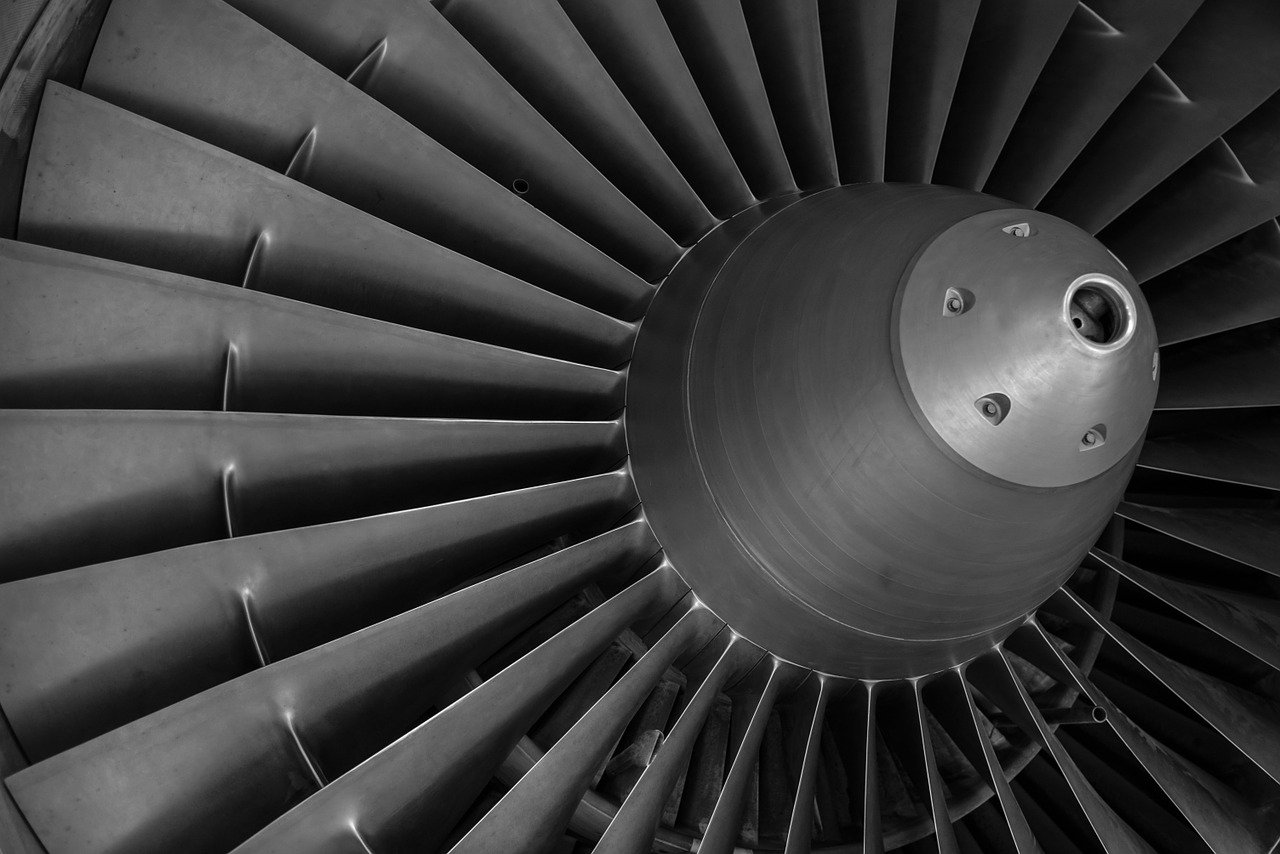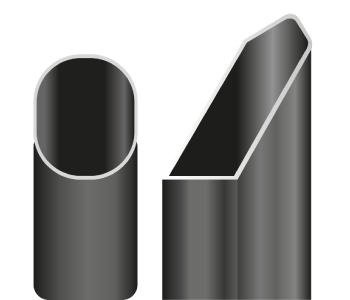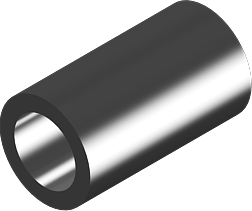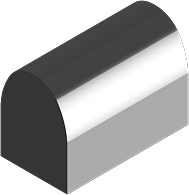Nickel Inconel Alloys
View AMS Numbers >
Nickel Inconel Alloys
What is Inconel?
Inconel® is a family of highly versatile nickel-chromium-based superalloys. A registered trademark of Special Metals Corporation, Inconel is considered is remarkable resistant to oxidation and corrosion and has high-performance capabilities under high temperatures. Inconel alloys also offer a superior combination of toughness and strength for demanding applications or harsh environments subject to pressures and heat.
When heated, Inconel forms a thick but stable oxide layer that protects a material’s surface from increased attack. Its outstanding high-temperature strength comes from solid solution strengthening or precipitation hardening, depending on the alloy. Inconel differs from Incoloyâ in composition and use. Inconel works better in demanding elevated temperature applications than Incoloy—although Inconel is harder to fabricate than Inconel.
Critical Advantages of Inconel alloys include:
- Good resistance to acids (sulfuric, phosphoric, nitric, and hydrochloric)
- Virtually free from chloride-induced stress corrosion cracking
- Superior mechanical properties at all temperatures
- Exceptional resistance to pitting, crevice corrosion, and inter-crystalline corrosion
- High resistance to oxidation at elevated temperatures
Several types of Inconel alloys exist, each with its own composition. Inconel alloys have specific traits that make them effective in different circumstances. Inconel 600, for example, is often used in chemical and food processing equipment because of its resistance to corrosion and oxidation. Inconel 625, on the other hand, is often used in aerospace and marine engineering applications because of its high level of strength without going through heat treatment.
Typical Applications and Uses of Inconel Alloys
Inconel alloys are well-suited for various industrial applications, including aircraft, marine, chemical processing, power generation, nuclear, gas turbine, aerospace, and automotive. Typical uses of Inconel are turbine blades and seals, submersible well pump motor shafts, and high-temperature fasteners on special machinery. Additional uses are chemical processing and heat exchanging tubing, steam generators, pollution control equipment, and critical core components in nuclear-pressurized water reactors.
Is Inconel Considered Steel?
Inconel is not considered steel or stainless steel. While stainless steel and Inconel both have silver finishes and use a numbering system for alloys and strengths, they are different in qualities, characteristics, uses, and weight.
Inconel features a nickel, chromium, and molybdenum composition, resists corrosion and pitting, and is available in several different alloys. Inconel costs more than stainless steel and can be superficially textured for a matte finish or smoothed for a shiny finish.
Stainless steel features a carbon, manganese, phosphorus, sulfur, silicon, chromium, and nickel composition; and a protective oxide layer that can be damaged by continuous exposure to extreme conditions. It’s available in several different grades.
Stainless steel is also heavier than Inconel alloys. Inconel jewelry, for example, looks like stainless steel but feels a lot like aluminum in weight. Stainless steel also doesn’t withstand heat as well as Inconel. That makes Inconel better suited for certain industrial products than stainless steel.
Forging Inconel Alloys
Inconel is widely used in forging industries for quality and oxidation-resistant end products. That’s because corrosion is among the most common problems within industries using forging materials. Manufacturers tried using Inconel in various applications and found it both practical and useful, so they’ve continued using it.
Forging presses metal under great pressure into high tensile strength components. This manufacturing process refines the grain structure and improves the physical properties— ductility, toughness, and strength—of a metal so that the grain flow can be oriented in the direction of principal stresses encountered in actual use.
Critical advantages of forging are:
- Beats casting or machining bar stock
- Stronger parts than other metalworking processes
- Highly shapeable into almost any product
- Versatile enough for use in any industry
- Cost-effective for manufacturing in large quantities
Machining Inconel
Machining Inconel requires high cutting forces and a highly developed skill set to ensure it is done correctly on a consistent, repeatable basis. To properly work with Inconel takes an understanding of its properties and how to compensate for its limitations. Machining tips include:
- Check tooling frequently for signs of wear
- Start with a solutionized piece of metal
- Use ceramic cutting tools for continuous cuts
- Avoid pecking when drilling Inconel
- Endmill with more flutes
- Drill with replaceable tips
- Use cobalt roughers for
- Think rigidity—fixture, machine tooling
These are just a handful of machining tips manufacturers should know when working with high-nickel alloys such as Inconel.
Inconel Alloys We Offer
Tech Steel & Materials is committed to meeting your most exacting standards and demands. Below is information on the Inconel alloys we offer:
Inconel 600
Offers good resistance in carbonizing and chloride-containing environments, corrosion and heat. Has high strength and good workability. Used extensively in chemical processing plants, nuclear reactors, steam generators, and chemical manufacturing components.
Inconel 601
Features very high resistance to oxidation and corrosion at higher temperatures. Has excellent mechanical properties. Is easily workable with standard procedures. Used in harsh environments exposed to wide temperature ranges and the presence of corrosives, such as acids.
Inconel 617
Brings various other outstanding properties to materials, including resistance to oxidation at high temperatures, thanks to added aluminum. Ideal for ducting, combustion cans, chemical production, heat-treating baskets, power-generating plants and gas turbines.
Inconel 625
A non-magnetic nickel-chromium superalloy. Features superb corrosion resistance and is very strong. Characterized by the wide range of fabrication possibilities. Used in a broad spectrum of applications that require exceptional corrosion resistance characteristics.
Inconel 702
Provides superior oxidation resistance from 2000° F to 2400° F (1093° C to 1316° C)—though you should avoid high-heat sulfur atmospheres. This nickel-chromium alloy offers moderate strength and is ideal for combustion applications.
Inconel 718
Used at temperatures ranging from -423° Ft o 1300° F (-253° C to 705° C). Age-hardenable. Readily fabricated in complex parts and has outstanding welding characteristics. Also has good tensile, fatigue, creep, and rupture strength. Used in liquid-fueled rockets, rings, and casings, sheet metal parts for aircraft, and land-based gas turbines.
Inconel 718SPF
A Gamma Prime strengthened alloy with excellent mechanical properties at both elevated and cryogenic temperatures. Suitable for temperatures up to around 1300F. Can be readily worked and welded in fully aged condition. Excellent strength from -423º F to 1300º F (-253º C to 705º C).
Inconel 722
Widely used for manufacturing gas turbine structural components, like turbine section frames. Can be annealed, cold worked using standard methods and machined using conventional techniques. Strengthened by adding titanium and aluminum. Age-hardenable by heat treatment.
Inconel X750
Used extensively in rocket-engine thrust chambers, airframe applications, hot-air ducting systems, and large pressure vessels, as well as heat-treating fixtures, forming tools, extrusion dies, and test machine grips. Made precipitation hardenable by adding Al and Ti. Has creep-rupture strength at high temperatures to about 1290º F (700º C).
Tech Steel & Materials offers nickel alloys in various shapes and parts – rod, bar, wire, sheet, plate, strip, tube, pipe, castings, and forgings – for use in the aerospace, military, marine, and power plant industries.
If you have any questions regarding Inconel, please contact us. Put our expertise in metals and alloys to work for you.
View Our Popular Inconel AMS Numbers
Select AMS Number:
| AMS Number | Alloy | Type | UNS | Cross Ref. Spec | Misc./Shape | |
|---|---|---|---|---|---|---|
| AMS 5581 Custom Tube | Inconel Alloys | Nickel | N06625 | - | Custom Tube |
 |
| AMS 5581 Inconel 625 Tubing | Inconel Alloys | Nickel | N06625 | - | Inconel 625 Tubing |
 |
| AMS 5589 |
Inconel Alloys | Nickel | N07718 | - | Inconel 718 Tubing |
 |
| AMS 5590 |
Inconel Alloys | Nickel | N07718 | - | Inconel 718 Tubing |
 |
| AMS 5599 Inconel 625 Plate | Inconel Alloys | Nickel | N06625 | - | Inconel 625 Plate |
 |
| AMS 5599 Inconel 625 Sheet | Inconel Alloys | Nickel | N06625 | - | Inconel 625 Sheet |
 |
| AMS 5599 Inconel 625 Strip | Inconel Alloys | Nickel | N06625 | - | Inconel 625 Strip |
 |
| AMS 5715 Custom Tube | Inconel Alloys | Nickel | N06601 | - | Custom Tube |
 |
| AMS 5715 Inconel 601 Bar | Inconel Alloys | Nickel | N06601 | - | Inconel 601 Bar |
 |
| AMS 5715 Inconel 601 Forging | Inconel Alloys | Nickel | N06601 | - | Inconel 601 Forging |
 |
| AMS 5715 Inconel 601 Ring | Inconel Alloys | Nickel | N06601 | - | Inconel 601 Ring |
 |
| AMS 5832 |
Inconel Alloys | Nickel | N07718 | - | Inconel 718 Wire |
 |
| AMS 5869 Inconel 625 Plate | Inconel Alloys | Nickel | N06625 | - | Inconel 625 Plate |
 |
| AMS 5869 Inconel 625 Sheet | Inconel Alloys | Nickel | N06625 | - | Inconel 625 Sheet |
 |
| AMS 5869 Inconel 625 Strip | Inconel Alloys | Nickel | N06625 | - | Inconel 625 Strip |
 |
| AMS 5870 Inconel 601 Plate | Inconel Alloys | Nickel | N06601 | - | Inconel 601 Plate |
 |
| AMS 5870 Inconel 601 Sheet | Inconel Alloys | Nickel | N06601 | - | Inconel 601 Sheet |
 |
| AMS 5870 Inconel 601 Strip | Inconel Alloys | Nickel | N06601 | - | Inconel 601 Strip |
 |

 Tech Steel & Materials
Tech Steel & Materials